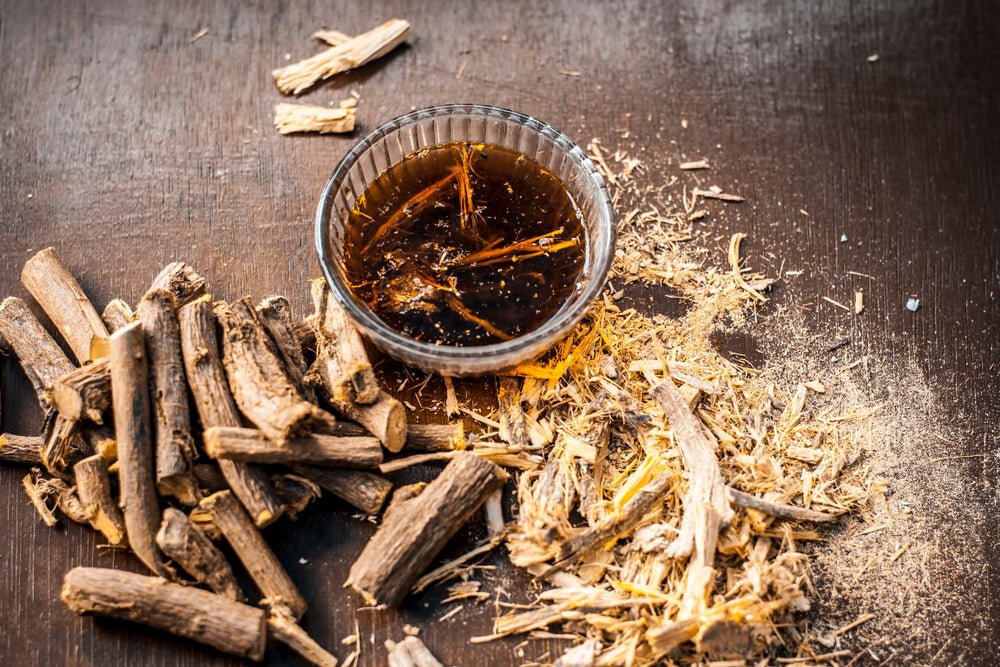Your cart is empty
Free shipping on all US orders


Free shipping on all orders

Licorice is native to Europe, Asia, and the Mediterranean, having been used for centuries in traditional medicine and as a flavoring agent. The root is the part of the plant that is used medicinally- to be precise the "juice" obtained from these parts. Licorice extract is very sweet but also has a slightly bitter aftertaste.
Today, licorice grows well in temperate climates around the world, most commonly in a belt that stretches from North Africa and into China.
Initially, it was used as a cough medicine but gradually made its way into candy thanks to its unique taste profile. Its medicinal properties are making a resurgence today as more and more develop an interest in using natural products over pharmaceuticals to heal what ails them.

Vitamins: licorice is a good source of vitamin C, B1, and B2.
Minerals: licorice is a good source of potassium, magnesium, and zinc.
Phytonutrients: licorice contains glycyrrhizin, which is a unique phytonutrient that gives licorice its characteristic sweet flavor and aroma. This phytonutrient also has powerful anti-inflammatory and antiviral properties.
Cough Relief: licorice is a well-known natural cough remedy, acting as both an expectorant and cough suppressant acting centrally on the brain.
Soothes Stomach Ulcers: licorice can help soothe stomach ulcers by protecting the stomach mucosal lining and promoting healing.
Anti-inflammatory: licorice has anti-inflammatory properties that can help relieve pain and swelling.
Antiviral: licorice has antiviral properties that may help by inhibiting viral replication or promoting their degradation.